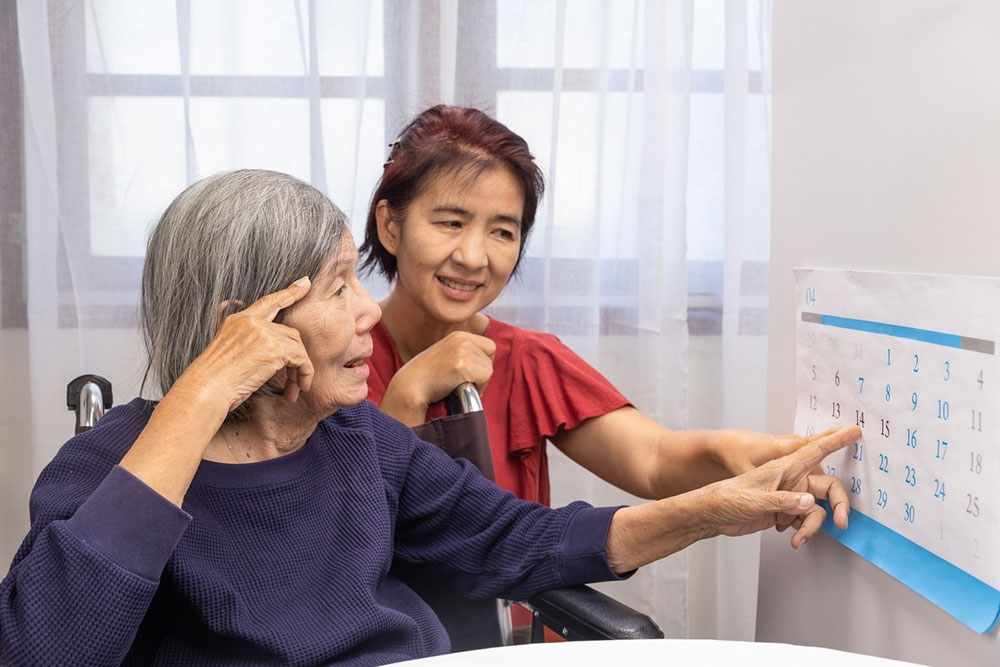10 Common Therapies for Dementia
Dementia is a term commonly used for a group of diseases that affect a person’s mind and lead to a decline in memory, reasoning, language processing skills, coordination, and mood . It could develop as a result of old age or be attributed to other conditions like Alzheimer’s disease, Parkinson’s disease, or even thyroid problems. Regardless of the cause, the condition can impact one’s life and make it more difficult to perform daily tasks.

Treating dementia with therapy
Since dementia generally affects people over the age of 65, it is considered a late-life condition. While there is no known cure yet , treatment can manage its symptoms and slow down its progress to maintain one’s quality of life. That said, treatment does not do much to improve brain function, memory, and other mental capabilities. For that, individuals can consider different types of therapies for dementia.
1. Occupational therapy
This therapy can help people with dementia complete their daily tasks by simplifying them, making them more engaging, and removing distractions. A caregiver’s involvement is necessary to improve participation.
2. Talk therapy
Also known as psychotherapy, this treatment enables individuals to talk to a mental health expert about their struggles and challenges. Doing so allows one to identify and deal with troubling emotions, thoughts, or behaviors. It can be particularly useful for those dealing with stress as a result of their condition.
The benefits of talk therapy may differ depending on the stage of dementia. In the mild stage, it can help one identify losses, manage fears about the condition, plan for the future, and express emotions freely. As the condition progresses, it may help rebuild a positive self-image, maintain autonomy where possible, and even encourage verbal communication.
3. Reminiscence therapy
Here, mental health professionals focus on the person’s skills and achievements. They also talk to those with this condition about things from their past, such as their hometown or school days. Doing that helps jog their memory and improve cognitive functioning. It is also a great way of boosting mood and communication skills for a better quality of life.
4. Cognitive stimulation therapy
Another way to improve cognitive function is to engage the mind in activities like word games, puzzles, group chats or discussions, baking, gardening, and number games. According to some studies, these activities can have positive effects on mental function and short-term memory among people with dementia.
5. Reality orientation training
Some people with dementia feel lost and confused about time and space. If that happens, doctors may recommend reality orientation training (ROT), especially if the problem is mild to moderate. In ROT, the discussions between the therapist and the person with dementia revolve around the current time, date, season, events, and surroundings. They may also involve conversations regarding the person’s name, memories, and daily routine.
6. Music therapy
Managing emotions is often easier with soothing music. This practice is known as music therapy, where soothing and familiar tracks are played to reduce negative feelings like hostility, anger, or agitation. Music therapy can be especially helpful in promoting relaxation around bedtime or encouraging movement during the day.
7. Art therapy
Getting creative is a wonderful way to manage dementia. Art therapy teaches one to manage emotions, like sadness and fear, often related to the condition. It offers individuals an outlet to express what they may not be able to convey with words and cope with the emotional realities of their situation. While this approach is said to improve quality of life, more research is needed to corroborate this claim.
8. Massage therapy
Getting a massage has several benefits for everyone, including those with dementia. For instance, it can promote calmness and relaxation and reduce feelings of boredom. That said, these experiences may differ from person to person.
9. Transcutaneous electrical nerve stimulation (TENS)
Many scientists suggest that TENS can help people with dementia. It involves using a mild electric current to stimulate a person’s nerves, which may help combat pain and improve balance and walking. But again, more conclusive evidence is required to support this dementia therapy’s benefits.
10. Pet therapy
Spending time with animals is a great way to deal with stress, agitation, irritability, and moodiness that may arise due to dementia. That is why many memory care communities have resident pets or offer pet therapy to their members.
Choosing the right therapy
Since the symptoms and progress of dementia vary from individual to individual, there is no one-size-fits-all solution. When choosing a therapy, one should consider what they want to achieve through it. For instance, does a person want to boost cognitive function and memory, improve their socialization skills, or enhance their mood? Depending on the goal, doctors may recommend one or more therapies in addition to formal treatment plans and lifestyle changes. While choosing a therapy, one must also consider a clinic or dementia care facility that is nearby for more convenience.















